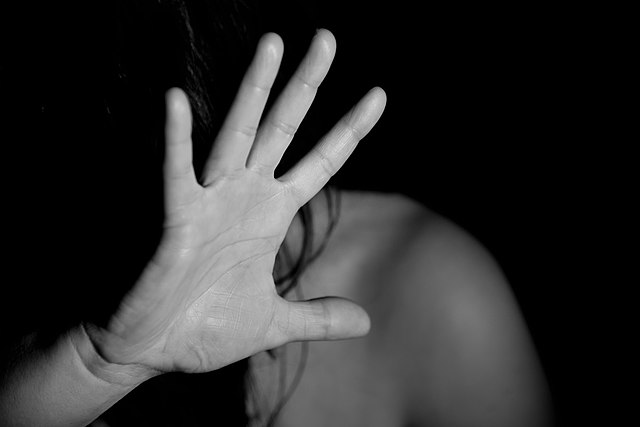Time to Move Beyond Statistics
One in Four Women Experience Severe Physical Abuse by an Intimate Partner

The statistics are staggering.
• One in four women and one in seven men experience severe physical abuse by an intimate partner in their lifetimes;
• One in six women and one in 19 men experience stalking in their lifetimes;
• A woman is murdered by a male intimate partner with a gun every sixteen hours;
• Gender-based violence disproportionately impacts women, American Indian/Alaska Natives, communities of color, LGBTQ+ communities, and members of other underserved communities.
Domestic violence, dating violence, sexual assault, and stalking victims fill emergency rooms and morgues, keep employees from being able to work, terrorize children, and interfere with their ability to learn. Gender-based violence increases health care costs, contributes to crime, and causes lasting harm to families and communities.
It is time — way past time — to do much more to stop this violence and to protect our communities. The Violence Against Women Act (VAWA) was passed in 1994. Since then, the rate of domestic violence has decreased by 63 percent.
• VAWA-funded prevention programming has been empirically demonstrated to reduce sexual violence.
• VAWA saves money. A 2002 study found that in its first five years, VAWA saved $15 billion in averted costs.
• VAWA has ended impunity for domestic abusers who prey on Native women on tribal lands.
• VAWA protects diverse survivors, including LGBTQ+ survivors, survivors of color, older adult survivors, survivors with disabilities, immigrant survivors, Native survivors, and others.
Now is the time to reauthorize the Violence Against Women Act with meaningful improvements that enhance our nation’s response to gender-based violence. That means moving forward — never backward and never remaining static. The Violence Against Women Act has been reauthorized three times since then, in 2000, 2005, and 2013; each reauthorization made vital improvements to the previous law. VAWA’s authorization lapsed in 2019; this is the third Congress that has thus far failed to enact a comprehensive VAWA reauthorization that is responsive to the identified needs of survivors and communities.
However, H.R.1620, the Violence Against Women Reauthorization Act of 2021, passed the House of Representatives with strong bipartisan support. This bill, based on extensive consultation with victim service providers, prosecutors, law enforcement, and other experts, preserves previous gains and improves current law to meet the needs of survivors and communities. This bill calls for an investment in prevention. It increases access to justice and safety for Native women and provides alternatives to the legal system.
In a word, VAWA protects victims and survivors and helps them rebuild their lives. Senators Dianne Feinstein (D-CA), Joni Ernst (R-IA), and Dick Durbin (D-IL) are developing a Senate companion to H.R.1620, but it has been seven months since the House passed its bill. It is past time for them to finalize and introduce a bipartisan bill that has the support of the gender-based violence field.
At Domestic Violence Solutions for Santa Barbara County, we have been working with individuals and families affected by gender-based violence since 1977. Our emergency shelters safely house over 400 people every year and through client-centered programming — provide a path to an abuse-free life. We know first-hand how important it is to reauthorize the Violence Against Women Act.
Stopping domestic and sexual violence and protecting victims must be a priority for all of our elected Members of Congress. There is no time to waste. We call on Congress to pass a bipartisan bill that builds on H.R.1620 and meets the identified needs of survivors and communities — your constituents are counting on you to do the right thing!
Jan Campbell is the executive director of Domestic Violence Solutions for Santa Barbara County and serves on the Policy and Advocacy Committee for the California Partnership to End Domestic Violence.



